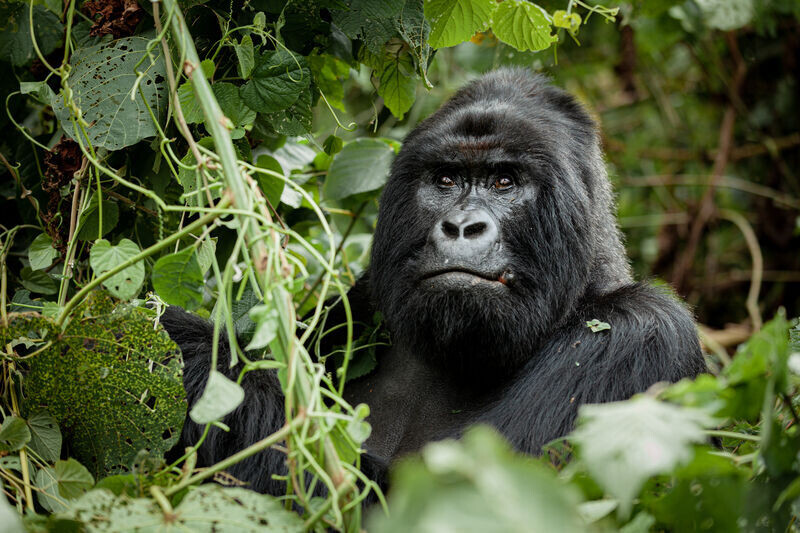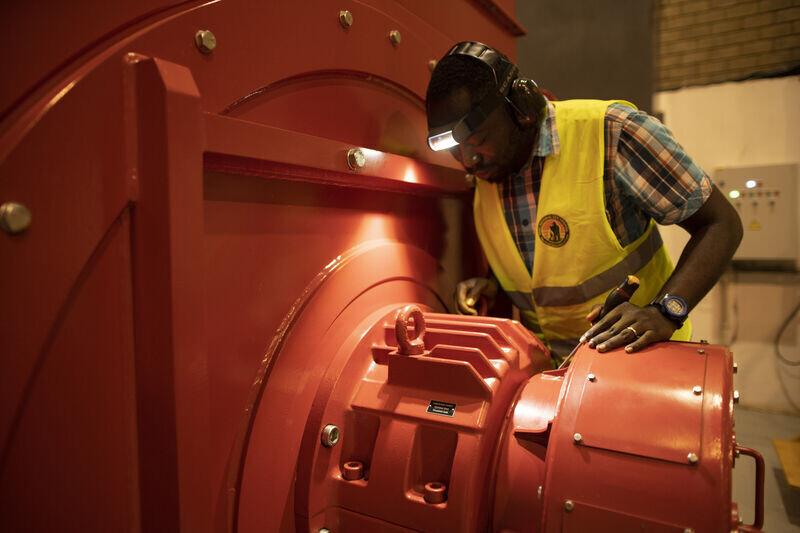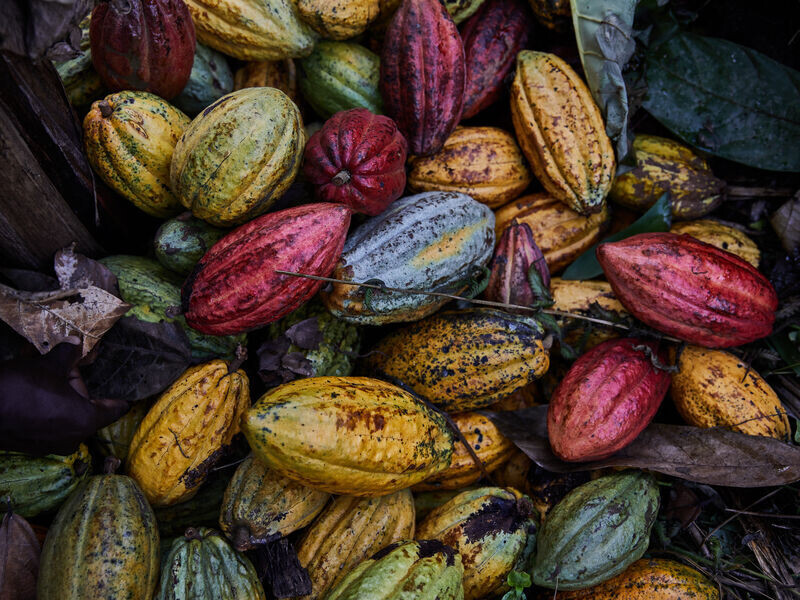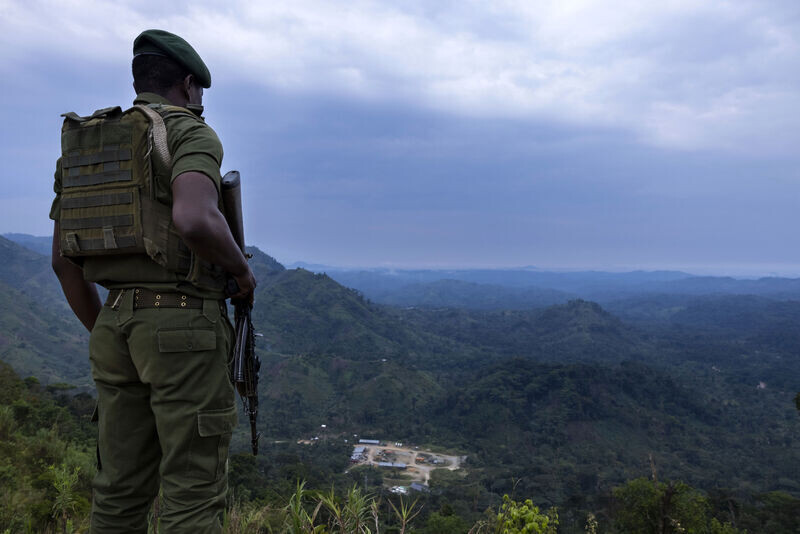- Even the most fragile ecosystems can illustrate how virtuous cycles of economic, social and environmental prosperity can be achieved through conservation.
- Virunga National Park – caught in the middle of a civil war that is once again gaining pace – is driving innovation to deliver peace through safe, sustainable jobs and a long-term social development.
- As the climate crisis rages, so sustainable innovation in countries such as the Democratic Republic of the Congo is becoming increasingly relevant to other protected sites around the world, where resources and biodiversity are under threat.
The year 2023 was the hottest on record – 1.48°C above pre-industrial averages – propelling economies and societies into risky, unprecedented territory. Leaders are increasingly called upon to transform the current growth and development models to better steward the planet towards a more secure future
Thus, in the programme of this year’s Annual Meeting in Davos, major nature and climate sessions paid particular attention to profiling lighthouse solutions, shining beacons that can show the way towards socio-economic development, nature conservation, climate innovation and peace-building efforts. This, in recognition of the role the climate crisis plays in amplifying conflict and undermining current models of sustainable development.
One of these lighthouses is the work being undertaken in Virunga National Park in the eastern region of the Democratic Republic of the Congo (DRC), on the watershed of the continent’s two great rivers – the Congo and the Nile.
Home to 50% of all terrestrial species on the African continent, Virunga houses more reptile and mammal species than any park on Earth. This includes the rare mountain gorilla – one of human being’s closest living relatives. A single 20-kilometer stretch in Virunga contains more species than all those found in continental Europe. Yet the park is surrounded by 11 million people living in extreme poverty.

Here is how Virunga is innovating to manage the tension between the need to protect one of the world’s crown jewels of natural heritage, and to respond to the chronic social injustices and violence from a protracted civil war.
Powering prosperity through clean energy
Those living in extreme poverty around Virunga see the park as a critical – and often the only – source of energy. From firewood to charcoal, the park offers communities much-needed fuel. All too frequently, this is a question of human survival.
Militias operating in the area recognize this and have an illegal revenue stream of $170 million annually from harvesting charcoal in the park. Aside from the devastation of natural habitats, such illegal activities promote violence and exacerbate civil injustices.
In response, Virunga has developed a programme of hydroelectric generators – built and managed by young technicians from villages – which deliver 60 megawatts of renewable energy to the area. This represents a 34-fold increase in clean energy generation, which supplies the 2-million-strong population of Goma, North Kivu’s capital, with 80% of its electricity.

A whole new industry of agricultural transformation has been created off the back of this renewable power, including 21,000 new jobs. Of the new employees, 11% are young men and women who have been drawn out of the armed militias into gainful employment. Over 30,000 farming families have seen their revenues increase thanks to the secondary processing capabilities that clean energy affords.
The plan is to expand clean energy sources and lower the price of clean power, which in turn will reduce the impetus for the illegal trafficking of charcoal and the dampen the militia-led violence that goes hand in hand with the trade.
Clean water for displaced populations
In the aftermath of the 1994 Rwanda genocide, a vast cholera epidemic led to the deaths of more than 1,000 people per day among the nearly million refugees who had fled across the Rwandan border to Goma in DRC and the borders of Virunga National Park. The cause: lack of access to clean drinking water.
In the recent up flaring of violence since January 2023, there were once again over a million displaced people around the city of Goma. Without access to clean water, the threats of contaminated water and subsequent death from disease were pressing.
Virunga National Park responded by building a water-pumping system in the space of three months. Powered by clean energy, the pumps channel clean drinking water from Lake Kivu in the park to where the displaced populations can access it.
Developing high-value agricultural industries
In the past 30 years, 211 Virunga rangers have lost their lives trying to protect the park’s fragile wildlife and ecosystems in the context of civil wars that have killed up to 10 million people. The park’s management team established a Fallen Rangers Fund for the unseen victims of the conflict – the widows and families of those lost protecting the park.
As the eastern DRC is an abundant cacao-producing area, the Virunga team decided to build a chocolate factory to employ the widows and children of fallen rangers. Working with well-known Belgian chocolatier Dominique Persoone, the factory was soon producing 1.5 tons of chocolate a month.

As of the time of writing, in January 2024, the factory has upped its output to an industrial scale of 50 tons, with plans for a 100-fold increase fuelled by clean power. Virunga Chocolate is now exported to Europe and beyond, with profits reinvested into the conservation of the park and surrounding communities.
Producing chocolate in the DRC is a dangerous business: the beans take weeks to ferment, leaving producers vulnerable to looting and exploitation. The Virunga Chocolate Factory gives local farmers the security they need to produce at scale – along with larger incomes.
From conflict to conservation
Virunga is a compelling example of what can happen when long-term sustainable development is prioritized over short-term opportunities such as oil and resource extraction.

The impact of a green economy in protecting the environment and contributing to the reduction of poverty and violence around Virunga takes on particular significance with the growing threat of forest destruction throughout the Congo Basin. With the expansion of roads into the forest, in search of forest and mineral resources, it becomes essential that economic growth be carefully planned to protect forests and communities.
This offers a new opportunity to scale up the lessons of Virunga to offer an alternative, green economic model that reconciles the economic needs of an entire country with the need to protect its vulnerable communities and fragile ecosystems.
Whilst the park is currently closed to tourism, due to the civil war, sustainable tourism remains on the horizon – to help turbocharge the park’s full potential.
This story was originally sourced from World Economic Forum


